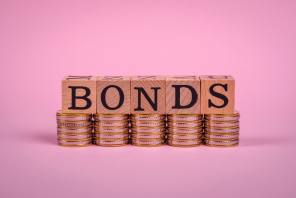
Article 4 / 4
Guide to sustainable multi-asset investingThe next generation of ESG opportunities and risks

He adds that, as is typical in a gold rush, “the cash piles in, but then eventually the tide turns, and the outcome is not always positive for investors because in a gold rush not all of the cash goes into good investments".
Coombs says the next stage of the cycle may well involve “the big boys coming into the market and disrupting the new companies. For example, we think the traditional automakers will eventually win out against the newer players in that market”.
His view on automakers is shared by Suzanne Hutchins, global investment manager at Newton Investment Management, who says the progress being made by traditional car makers in the electric vehicle market is not being reflected in the share prices of those companies, as the market instead focuses on the challengers.
Many of those traditional automakers may not pass the sustainable investing screens now, and so would not be eligible for inclusion in some such funds, limiting the potential for share price gains.
But Hutchins says she believes that in the future many traditional companies will be recognised for the progress they are making in terms of sustainability, and make share price gains as a consequence.
She says these areas of the market represent better value right now than buying the more nebulous companies, the valuations of which have already risen sharply.
Coombs says the approach he is taking is to buy companies that supply the electric vehicle industry, such as metal producers, and that way he is not forced to choose between them.
He says most of the emerging opportunities in the world of sustainable investing are, at heart, technology companies, and believes one key area where change is coming is in the area of home heating.
Coombs prefers not to invest in such businesses if they are reliant on government subsidies, as the revenue is quite short term in nature. While valuations may be high now, if the subsidy regime changes, that changes the valuation of a business.
He says this approach means he tends not to be “the first to the party, in terms of investing in early stage companies”.
Andrzej Pioch, multi-asset investor at Legal & General Investment Management, says sustainable investing will always contain an element of early stage investing as “we are always learning something new about sustainability and it would be wrong to think the solutions of today will be the solutions of tomorrow. As an index investor I can see lots of new products popping up all the time”.
'You cannot please everyone'
Chris Hiorns, head of multi-asset strategies at EdenTree Investment Management, says labour market conditions, including the use of zero hour contracts by employers, has become a major issue for clients today.
He also expects issues around the sustainability of food production and the impact of food on human health to be issues that drive the next generation of sustainable investors.
He says: “We had a client recently who objected to our inclusion of a chocolate company in a sustainable investment fund; they were concerned about the impact of chocolate on human health. But we felt it was justified to include the chocolate company in the portfolio, we cannot please all of the people all of the time.”
Simon Holmes, multi-asset investor at BMO Global Asset Management, says the task of building a more sustainable economy is enormous and will require billions of pounds of capital from investors and governments, but that many sustainable initiatives will happen that we might not have previously expected.
One example he cites is that of mobile payments, where he says there is a positive health impact for individuals from not using cash, as it means they are less likely to pick up viruses.
Rachel Blythe, investment manager at Walker Crips, says the lack of definition around sustainable investing makes the adviser's task difficult.
Defining ESG
She says: “The lack of a clear definition of what ESG or sustainability means creates a marketplace of investments that, when blended together, can create a portfolio that aims to tackle both established opportunities and new ideas.
"However, as clients become more aware and start to generate their own views on particular areas that are of interest to them, it’s important to be mindful there is a risk that by chasing specific ‘trends’ or ‘themes’, diversification within the portfolio could be reduced and therefore the risk increased."
Blythe adds: "Establishing whether the client is passionate enough about their personal views to prioritise them over their investment goals is often the first step. In many cases, the increased risk of focusing on specific goals is unsuitable and therefore there is still a trade-off when it comes to ESG investing.
"However, the wide range of funds available means that managers who share some of the same goals as their clients can be selected, provided the client is comfortable with accepting that their personal goals will be one of many themes within their portfolio.”
Clark Fenton, fund manager at RWC Partners, tends to look at the areas of innovation in the economy, such as the transition to renewable energy, and then apply a sustainable investing process to each of the companies within the theme as a way to find the best performers that are ESG compliant.
David Thorpe is special projects editor at FTAdviser





